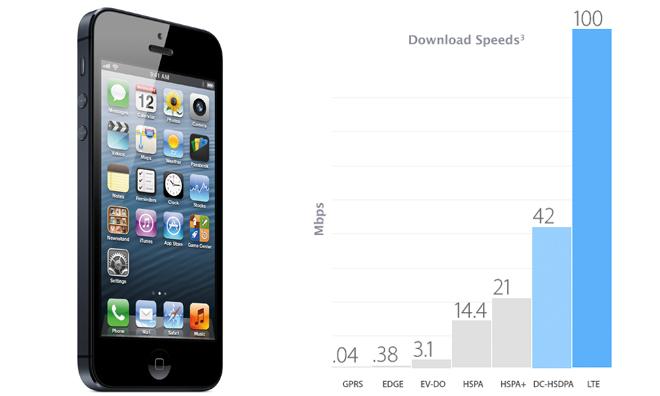A website dedicated to providing iPhone carrier hacks claims to have discovered code in versions of Apple's iOS that suggests the nation's top three carriers are purposely throttling iPhone and iPad data speeds for all customers.
UPDATE: The original, mistaken claims of "throttling" on iOS devices have been taken back. The issue of carrier profiles is explained in this article.
According to developer Joseph Brown (via Cult of Mac), operator of iTweakiOS, specialized code exists on iPhones and iPads operating on Verizon, AT&T and Sprint, which limits the devices' network settings to effectively caps data bandwidth.
Brown took snapshots of the iOS code managing the three carriers' network settings as applied to an iPhone 5, all of which appear to hamstring the handset's cellular data capabilities. For example, an AT&T iPhone 5 was limited to HSDPA "Category 10," which tops out at 14.4Mbps. The second-largest U.S. carrier's network is capable of supporting up to HSDPA+ speeds that reach 21.1Mbps.

Screenshots of AT&T throttle code. | Source: iTweakiOS
As for Verizon, Brown found throttling code on the telecom's versions of the iPhone and iPad relating to its 4G LTE network. Sprint, it seems, does not have such limitations enabled for its high-speed data offerings. Apple devices running on the 3G networks owned by both Verizon and Sprint, however, are also affected by similar limitations.
Because Apple is in complete control of the code running all of its devices, it can be posited that the company instituted the bandwidth caps at the behest of its partner carriers.
"[…] from previous statements released by AT&T and many tech orginizations [sic], iPhones are very complex devices with a very complex OS," Brown writes. "The OS eats much more data, even when in idle mode, than most phones on the market. So by carrier request, Apple limits devices to 'even out' the network, even if it means Galaxy users out perform Apple devices by such large scales."
In his testing, Brown did not find evidence of throttling on devices operating on T-Mobile's network.

